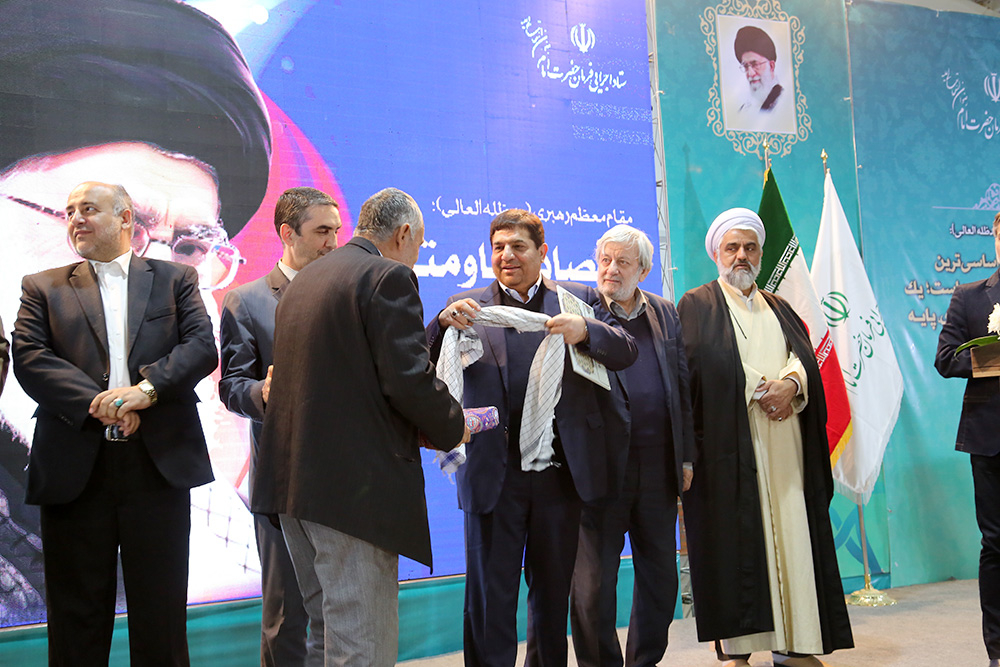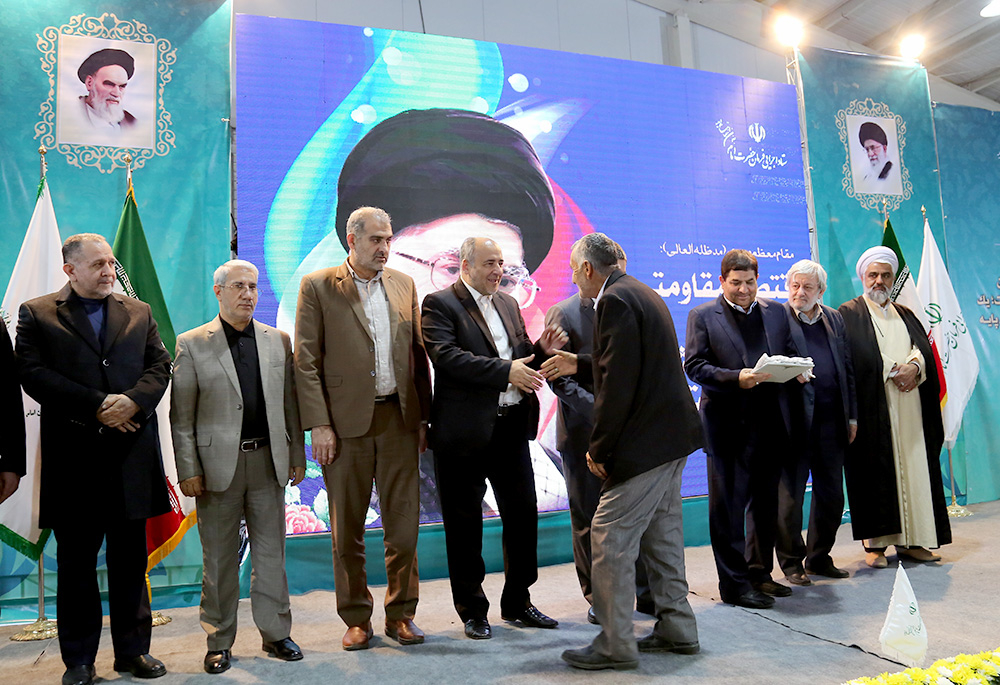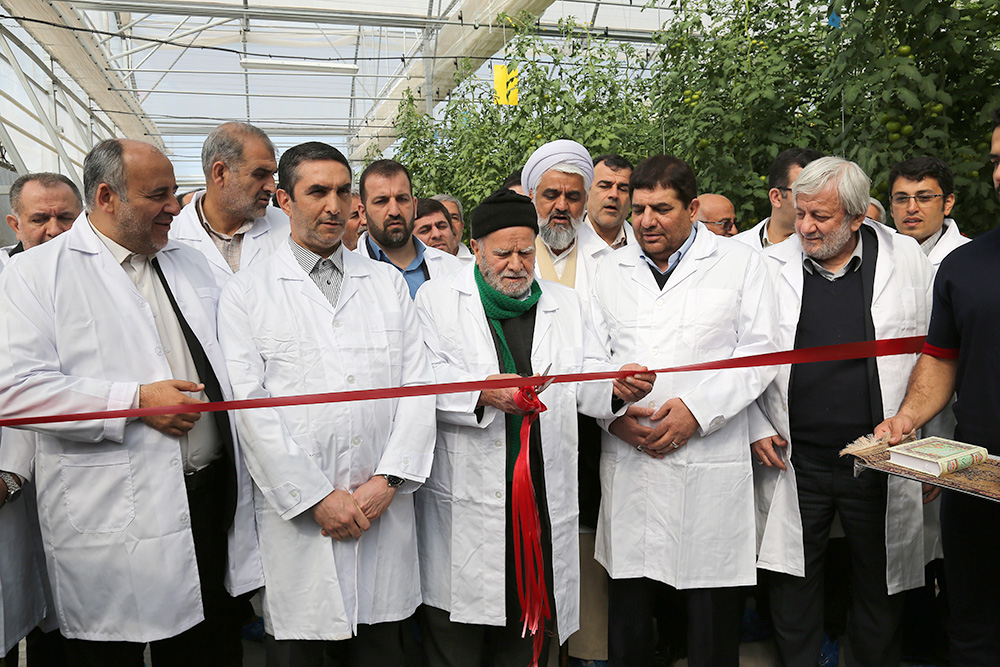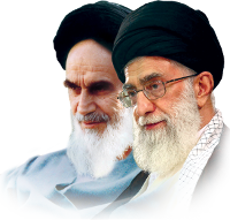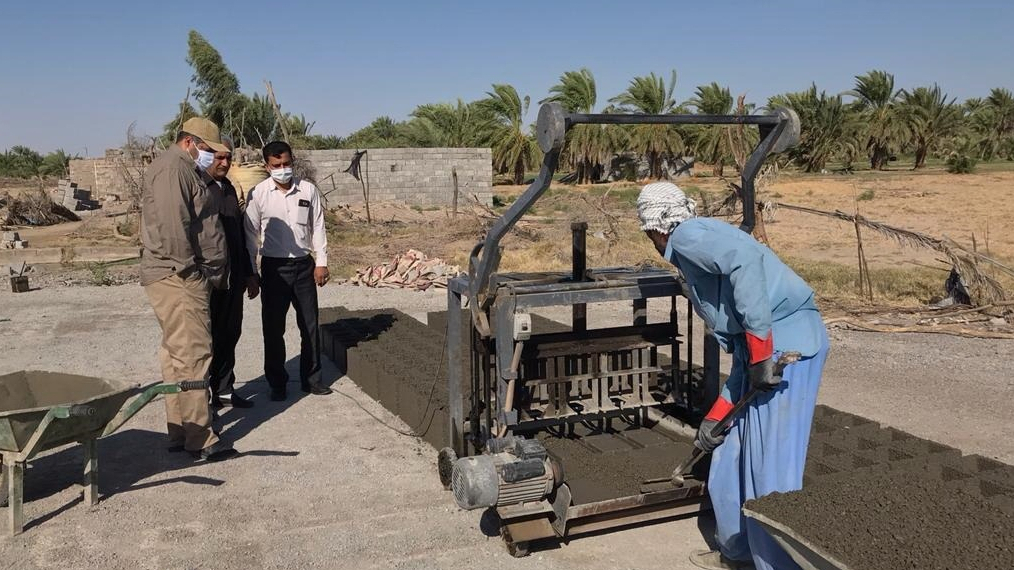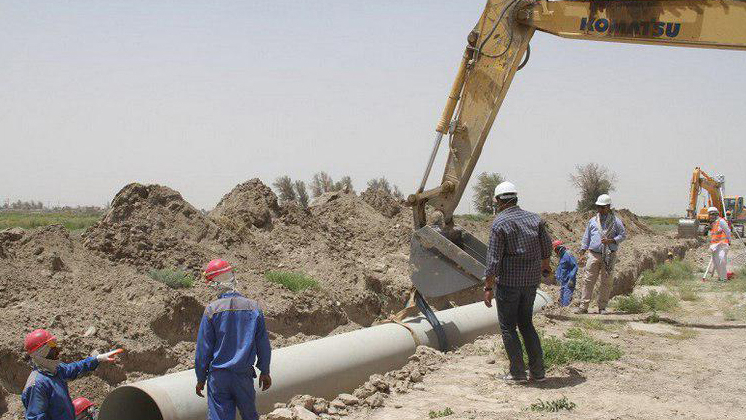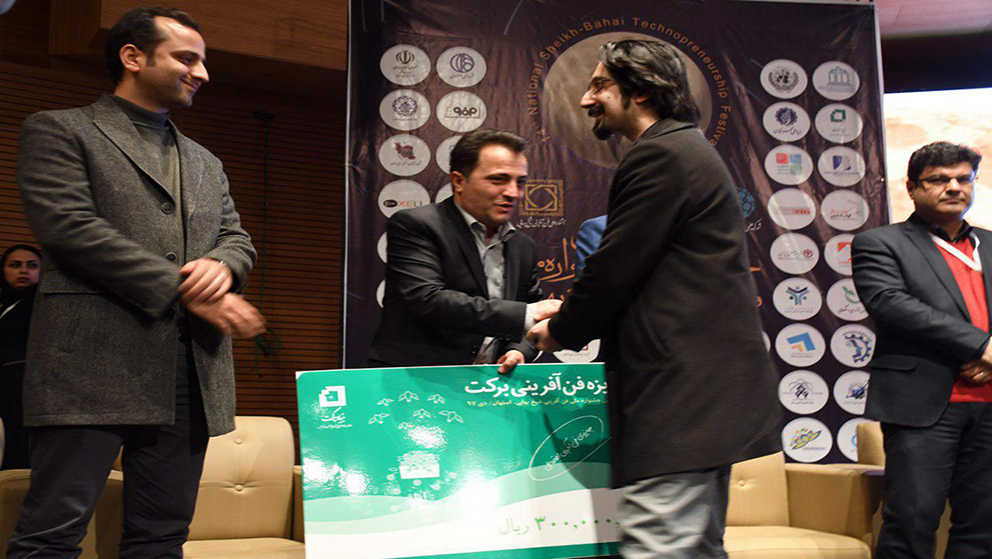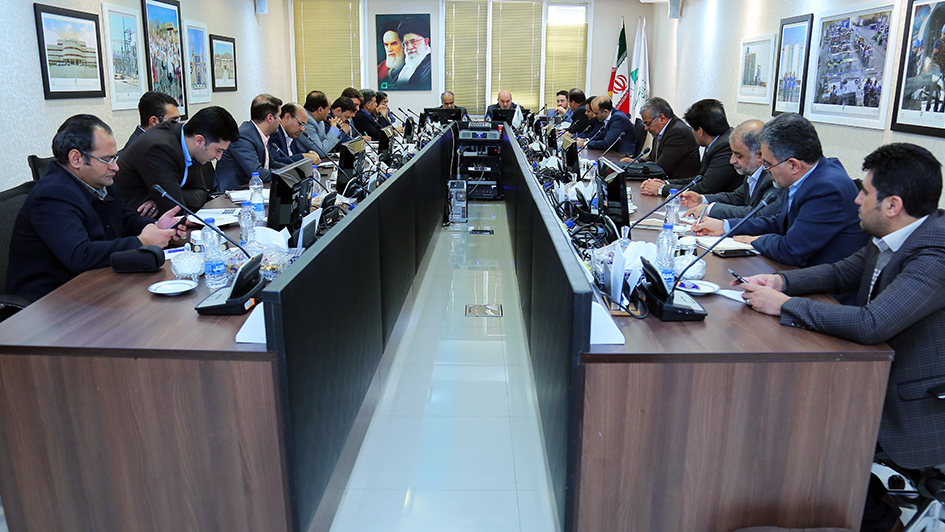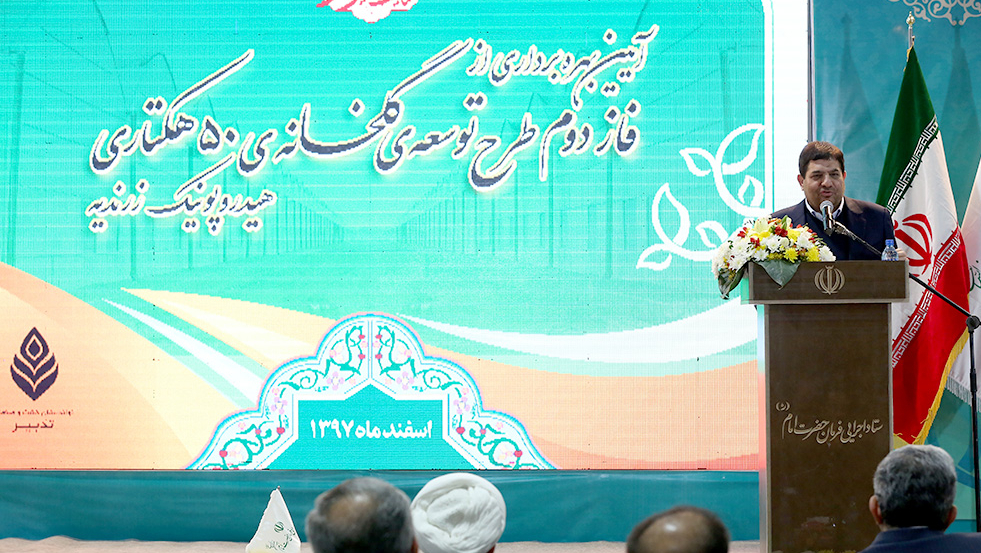
He made the remarks in the inaugural ceremony of the second phase of the development project of Zarandieh 50-ha Hydroponic Greenhouse and said, “in addition, Execution of Imam Khomeini Order (EIKO) has put 41,000 employment opportunities into operation in the last few months directly.”
No economic activity is done in the Execution of Imam Khomeini’s Order (EIKO) at all, he emphasized and reiterated, “all activities and measures in EIKO are focused on the eradication of poverty, elimination of deprivation, generation of employment and social-economic empowerment of disadvantaged and underprivileged areas of the country.”
In the current situation that the country is facing the limitation of natural resources as well as sanctions imposed against the country, he said, “under such circumstances, the country should focus on high-quality products in order to get rid of problems.”
The issue of ‘production’ has been reiterated by the late Imam Khomeini (Ra) and Leader of the Islamic Revolution Ayatollah Khamenei, he said, adding, “if ‘production’ is realized in the country, all problems can be settled and in this case, we will be able to settle relevant problems in this sensitive situation successfully.”
Priorities should be considered for ‘production’, Dr. Mokhber added.
Accordingly, two approaches have been put atop agenda in the Execution of Imam Khomeini Order (EIKO), he said, adding, “firstly, all measures taken in the country should help boost production. In the meantime, production will lead to the generation of employment. For this purpose, Execution of Imam Khomeini’s Order has created 400,000 employment opportunities in the last few years in a way that EIKO generated 41,000 jobs in the past few months.”
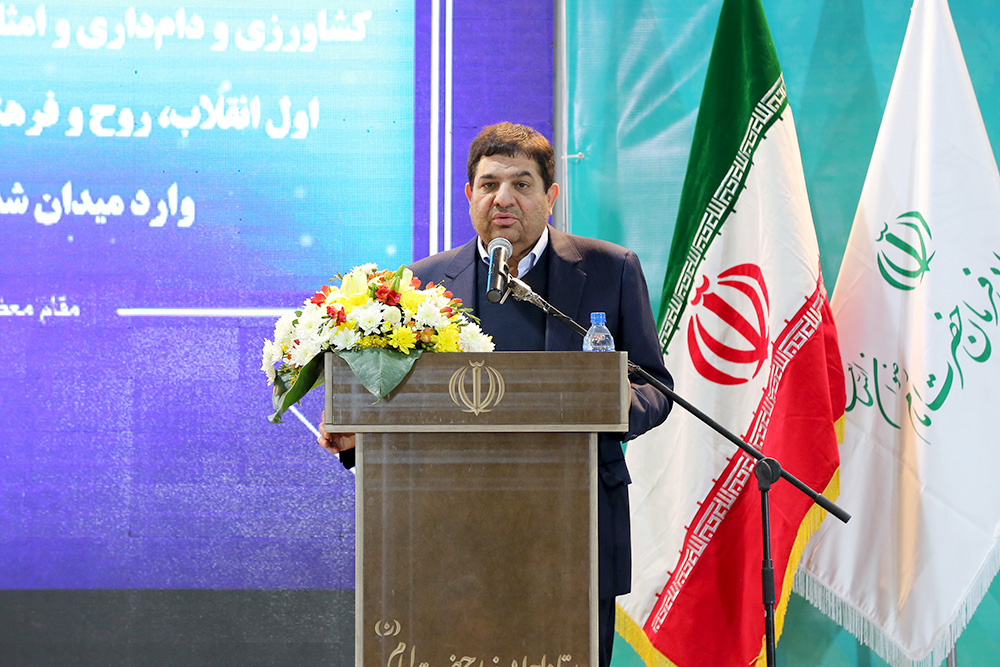
Elsewhere in his remarks, Dr. Mokhber highlighted, “focusing on the issue of ‘resistance economy’ is the second approach followed up by the EIKO.”
Less attention has been paid to the issue of ‘resistance economy’ in the country and even in academic circles, he said and called on responsible officials to define an executive program for realizing objectives of ‘resistance economy’.
Dr. Mokhber reiterated, “unlike what enemies of the country claim, they have excluded ‘medicines’ and ‘foods’ from sanctions, but it should be kept in mind that all problems lie in these two areas and the country should focus on them i.e. medicines and foods.”
Today, one of the threats in the country lies in these areas, he said, adding, “accordingly, Leader of the Islamic Revolution put forward the issue of ‘medicines’ and ‘foods’ in the clarification of topics of resistance economy.”
He emphasized that the Execution of Imam Khomeini’s Order (EIKO) has focused on these two issues i.e. ‘medicines’ and ‘foods’.
Today, 96 percent of medicines and drugs are produced in the country, he said, adding, “with the construction of the pharmaceutical town, we have made our utmost efforts to attain full self-sufficiency in the production of medicines.”
Production of an anticancer drug in the country in 2017 prevented capital flight as much as 120 billion tomans in a year, he reiterated.
With producing an anticancer drug in the country in 2017, about 120 billion tomans worth of currency was saved in a year, he repeated.
He pointed out that the country faces with an undeniable truth of climate change in the food sector, adding, “climate change is not just for our country, rather, it is related to the whole world. Today, drought accounts for nearly 55% of natural mortality.”
Unlike what enemies claim that they have excluded ‘medicine’ and ‘drug’ from the sanctions list, almost all problems are related to these two sectors, he said, adding, “however, we should focus on these two important issues i.e. ‘medicine’ and ‘drug’.”
Today, one of the country’s threats lie in these areas and for this reason, Leader of the Islamic Revolution put forward and emphasized the issue of ‘medicine’ and ‘drug’ in the clarification of topics of resistance economy.
Execution of Imam Khomeini’s Order (EIKO) has concentrated on two important issues i.e. ‘medicine’ and ‘drug’, he said, adding, “today, 96 percent of drugs and medicines are produced in the country and with the construction of pharmaceutical town, the country will attain complete self-sufficiency in this respect.”
In the food sector, “we face an undeniable truth of climate change. Such climate change is not limited to our country, rather, it is related to all parts of the country.”
Nowadays, drought accounts for approx. 55 percent (55%) of natural deaths, he said, adding, “climate change also creates a problem for rural and nomad community.”
In the early years of the Islamic Revolution, 25 and 75 percent of the population of the country lived in urban and rural areas respectively but this ratio has now reversed completely, he maintained.
Under such circumstances, knowledge-based issues are put forward, he said, adding, “knowledge-based issue is widely used and applied in advanced countries to a great extent.”
For example, a greenhouse has been built in Mexico on a land area as large as 144 square meters which produce 1,200kg products with consuming only 800 liters of water per annum, he added.
With consuming 800 liters of water, 100 cows or 500 sheep can also be fed, he reiterated.
Elsewhere in his remarks, Dr. Mokhber pointed to the widespread activities of Barakat Foundation, affiliated to EIKO, and reiterated, “although major activities of the Foundation have mainly focused on generating employment, using up-to-date knowledge and technical know-how should be taken into serious consideration as well.”
For example, in the field of stockbreeding and animal husbandry industry, construction of an equipped greenhouse for the provision of fodder and forage should be taken into consideration, he said, adding, “lowering cost price or final cost is considered as one of the salient specifications of knowledge-based activities.”
He went on to say that the Netherlands is vast as the provinces of Gilan and Mazandaran and green area of Golestan province. The average rainfall in the Netherlands is 700mm while the rainfall in the aforementioned regions stands at 1,000mm.
Iran enjoys high capacities with God-given natural resources, he said and called on all responsible officials to take the said issue into serious consideration.
According to him, EIKO has taken giant strides for materializing objectives of resistance economy and for this reason, it [EIKO) transferred 370 companies to people in the past year (ended March 20, 2019).
He pointed to the high capacities in Zarandieh region in Markazi province and said, “with the development of greenhouse and development of animal husbandry in this area, I hope that 15 percent of butter of the country will be produced in this area.”
Low Share of Agricultural Productions from Non-Oil Exports
In the inaugural ceremony of the second phase of the development plan of 50-ha Hydroponic Greenhouse in Zarandieh, Governor General of Markazi Province Ali Aqazadeh added, “this province enjoys high capacities in industrial and agricultural fields.”
He put the non-oil exports share of this province in the nationwide at $1 billion while the agricultural share of this province is less than 10 percent.
However, Markazi province accounts for $1 billion non-oil exports share of the country to itself.
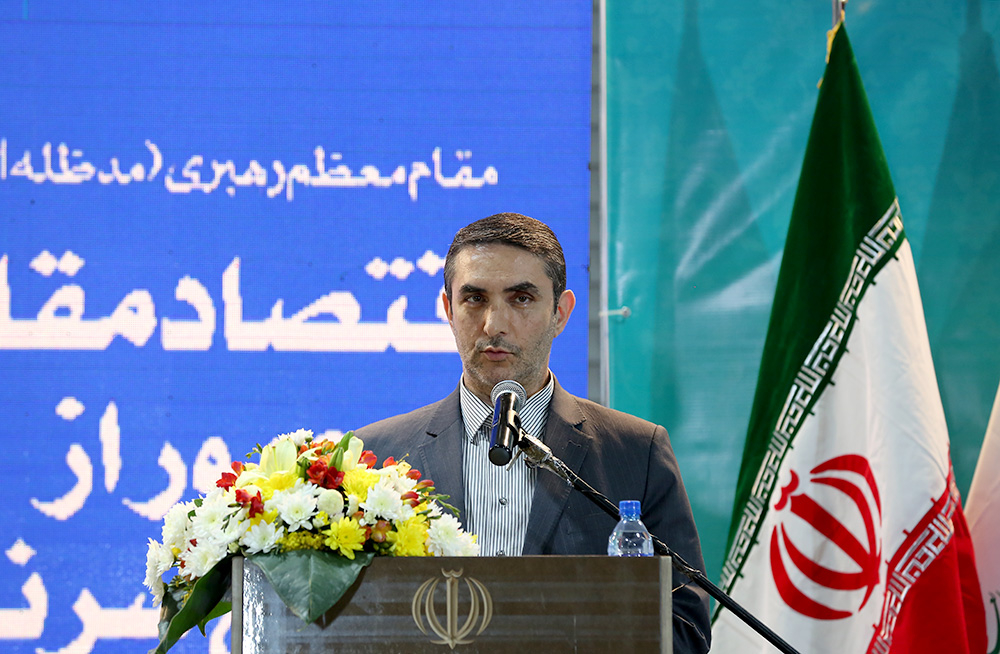
He added, “Execution of Imam Khomeini’s Order has implemented programs of the resistance economy in the country in the best form possible. Launching 50-ha Hydroponic Greenhouse in Zarandieh of Markazi province is solid evidence for the said claim.”
Moreover, EIKO is considered as a successful model in the field of generating employment and warding off deprivation and poverty in the country, the governor general stated.
More productivity can be attained with the optimal use of water and less land area, he said, adding, “greenhouses play an important role in promoting productions and increasing exports capability as well as yielding foreign currency.”
At the end of this ceremony, an esteemed family of Shahid Mohammad Daliri and war-disabled farmer Reza Daliri were appreciated. In the same direction, the esteemed family of martyred Eng. Hassan Saeedi was honored on the occasion of the commemoration of Khajeh Nasir Tousi dubbed “Engineers’ Day”.
(It should be noted that the second phase of the development plan of 50-ha Hydroponic Greenhouse in Zarandieh, Markazi province, became operational in Khoshkrood area of Zarandieh in the presence of governor-general of Markazi province, representative of people of Saveh and Zarandieh in the Parliament, Friday prayers leader of Markazi province, city and provincial officials.
Also, the ground was broken for the construction of second parcel of land, as large as 15 ha, for the development project of hydroponic greenhouse in Zarandieh of Markazi province in the course of visit of head of EIKO to Markazi province.
It should be noted that 50-ha hydroponic greenhouse in Zarandieh, Markazi province, is equipped with most modern technology, similar to the greenhouses in advanced and developed countries like the Netherlands, France and Spain.
In this greenhouse, products are raised and cultivated in the form of hydroponics according to the world’s latest technology.
Also, this greenhouse is equipped with a fully mechanized system in a way that feeding and nutrition of plant are carried out in a mechanized form. Total production volume of summer crops on 10-ha land area of hydroponic greenhouse in Zarandieh stands at about 2,900 tons while the same production volume of summer crops in outdoor cultivation space is estimated at 290 tons i.e. about 10 percent (10%).
[With due observance to the said issue, it can be concluded that the volume of products cultivated in the form of hydroponic exceeds outdoor cultivation.]
More than 600 billion rials were spent for the construction of the second phase of the greenhouse complex in Zarandieh of Markazi province in a way that this development project generated over 230 employments for job-seeking people directly and indirectly.
